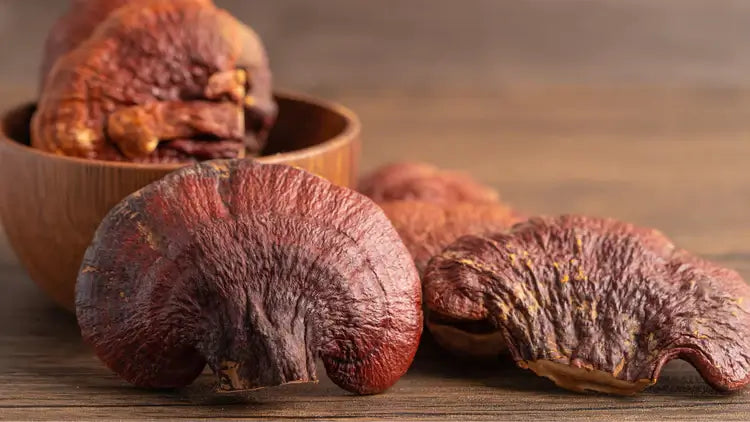Love Hemp acknowledges the updated consumer advice from the Food Standards Agency (FSA) recommending a daily limit of 10mg of Cannabidiol (CBD) for healthy adults and we await instructions from the FSA regarding packaging changes to reflect the new guideline.
It is important to note that this guidance is effectively based on chronic use and lifetime consumption of CBD isolate (rather than distillate), and ultimately the FSA still considers CBD to be safe.
Love Hemp with its partners have invested heavily into the Novel Foods authorisation process which conducted extensive product safety testing as part of that process. We continue to take a conservative approach to the daily use recommendations given to consumers and have continued to remain in line with FSA guidance to date. As a result, almost all Love Hemp products already have a starting recommended dose of 10mg CBD per day and our maximum daily consumption of 70mg CBD has been in line with FSA guidance. A guidance which is as of today reduced to 10mg by the FSA.
We continue to believe in the short and long term safety of CBD usage based on the evidence that is available today, notably from our Novel food safety studies and data provided by WHO.
As a company committed to quality and safety, we understand the importance of evidence-based recommendations to protect public health and therefore reached out to our Chief Scientific Advisor, Dr Sepe Sehati for his preliminary assessment of the evidence supporting the FSA’s announcement. Dr Sehati said:
“In 2020, based on the advice of Committee on Toxicity (COT) the FSA concluded that 1 mg/kg bw/day, or 70 mg in a 70 kg adult, of CBD represented a pragmatic upper level of intake below which there would be no concerns about safety.
Compared to other acute safety studies and multiple clinical trials the 70 mg dose was very low. Indeed, in a number of clinical trials some of which were using 1000mg CBD /day for 6 weeks there were mostly no adverse events (AEs) with acute administration and mild to moderate adverse effects with chronic administration.
In its latest CBD safety announcement, the FSA have referred to a number of studies to which we have no access in order to ascertain essential details such as; study protocol, laboratories used, whether the research is peer reviewed, or the manuscripts’ conflicts of interest statements. Nonetheless, as a result of these studies, the FSA now supports provisional Acceptable Daily Intake (ADI) of 0.15 mg/kg bw/day (equivalent to 10mg CBD/day for a 70kg adult) for pure form cannabidiol (CBD) (when used at≥98% purity) as an ingredient in foods.
A provisional ADI of 10 mg CBD/day for an average 70 kg adult is approximately equivalent to 4-5 drops of an oil-based supplement product containing 5% CBD of ≥98% purity.
The updated recommendation of 10 mg CBD/day will be seen as a questionable, extremely cautious approach by the FSA especially so in the absence of any transparent, publicly available data.
In reaching its advice the FSA have used a number of studies, details of which are not available for scrutiny, to identify No Observed Adverse Effect Levels (NOAELs) for effects on the liver in rodents. They have then applied a 300-fold uncertainty factor to recommend a provisional chronic ADI of 10 mg CBD/day (0.15 mg/kg bw/day). Using a three-hundred-fold uncertainty factor means that the FSA have divided the NOAEL identified in the studies they have used by 300 and consequently the new recommended acceptable exposure to CBD is set at 300 times lower than the level at which there are No Observed Adverse Effect Levels.
I am not aware of any such intense scrutiny ever applied to any other novel foods applications. So, there does appear to be something quite different about CBD. There are more effectives means of achieving some of the safety goals. For example, confirmation of any suspected consequence of chronic (long term) exposure to CBD on a daily basis is best addressed by post-marketing surveillance, rather than further lifetime studies in animals which for a number of reasons is not helpful at all. This would also bring parity between food safety regulation and regulation of medicines.”
Kamran Sattar, the CEO of Love Hemp shares his thoughts:
“We take immense pride in being one of the few CBD wellness brands in the UK that use a broad-spectrum CBD distillate in the majority of our products. Our continuous focus on product safety, consistency and quality is our commitment to providing our customers products that are both effective and safe, ensuring their continued well-being, satisfaction, and trust in our brand and product ranges.
Our new functional range of wellness products target the need states of optimum sleep, mental cognition and natural calm which all fully comply with the new FSA guidelines, although as explained by the FSA these guidelines are precautionary and relate to chronic, lifelong use specifically with pure CBD isolates.
We remain confident that all current and future data specifically conducted on our premium CBD extracts show and will continue to demonstrate considerably higher safe daily CBD usage limits.
At Love Hemp, consumer confidence is our highest priority, and we remain dedicated to delivering the safest, highest-quality CBD products available on the market.”





